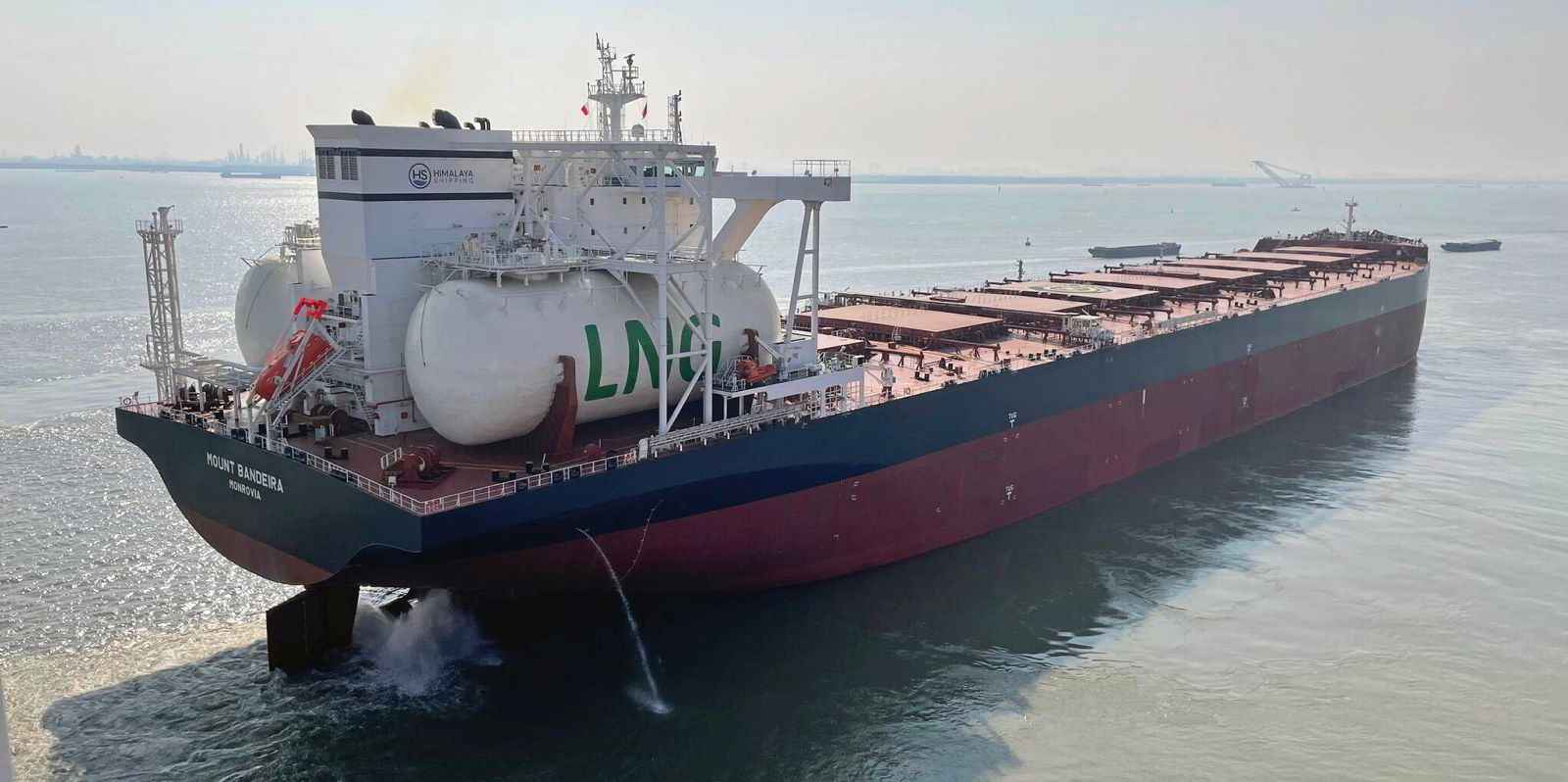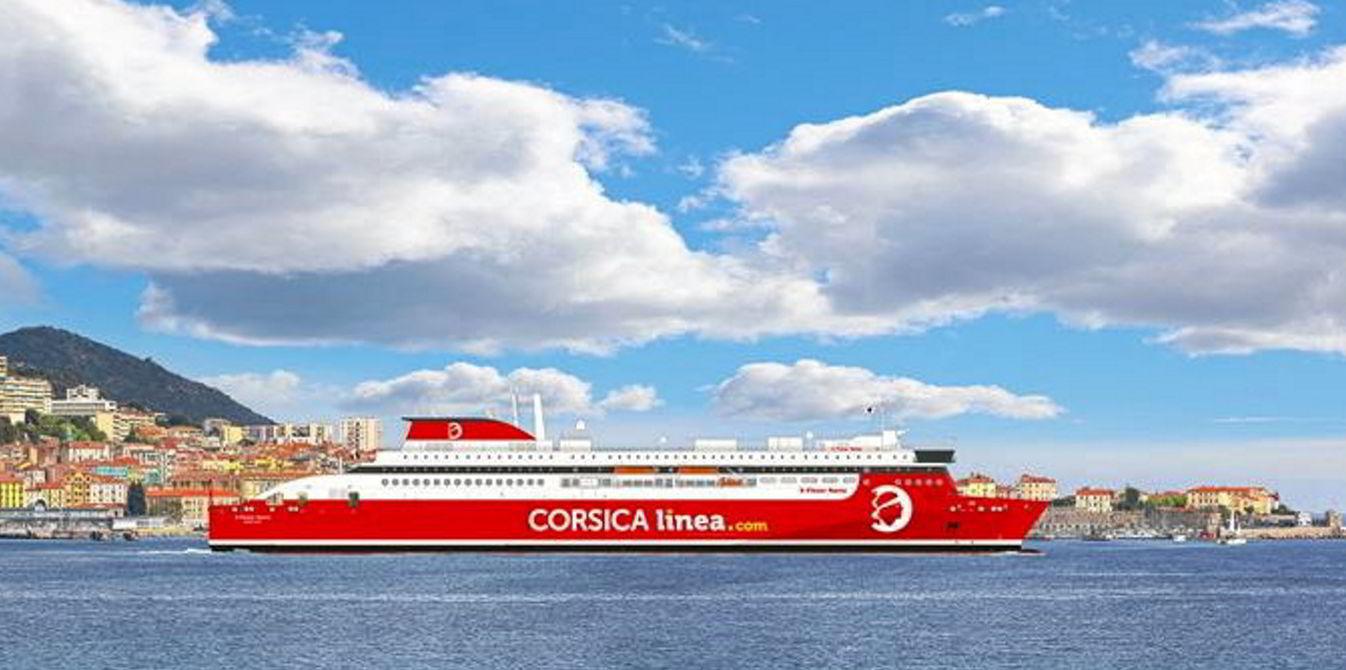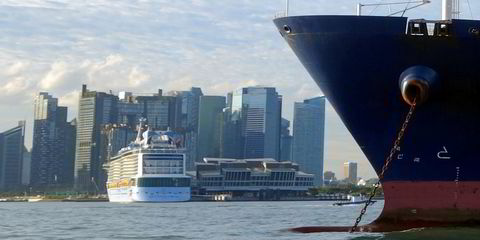Methanol went “mainstream” as an alternative fuel choice for vessels in 2023 with about the same number of orders placed as those that can use LNG, according to classification society DNV.
The year also saw the emergence of the first ammonia-fuelled vessel orders.
DNV said its Alternative Fuels Insight (AFI) platform logged 298 ships with alternative fuel propulsion in 2023 — an 8% increase year on year.
It also recorded 298 vessels booked for retrofitting jobs to enable them to run on alternative fuels.
“The year also saw methanol go mainstream, with a sharp increase in orders — 138 — putting it neck and neck with LNG — 130,” DNV said.
The 138 vessel numbers for methanol — which excluded methanol carriers — was sharply up on the 35 newbuildings contracted in 2022. Some 106 of 2023’s total were container ships, followed by 13 bulkers and 10 car carriers.
DNV said the 130 vessels contracted to use LNG as a fuel was down from the 222 ordered in 2022.
But it said LNG would be in the lead if only newbuildings were included, as a “considerable proportion” of methanol orders were for retrofits.
The society — which highlighted that LNG broke the 1,000 vessel mark, excluding LNG carriers — said 48 of 2023’s LNG-fuelled orders were for container ships, followed by car carriers on 40 ships and 30 tankers.
DNV said 2023 marked a breakout year for ammonia, with 11 orders for vessels run on this fuel, and more are in the pipeline.
There were just five orders for hydrogen-fuelled vessels compared with 18 in 2022.
The society said the maritime sector is considering a range of decarbonisation options as it moves to cut greenhouse gas emissions and meet the stricter targets set by the International Maritime Organization in July 2023.
DNV chief executive Knut Orbeck-Nilssen said: “As we navigate towards a greener maritime future, the growing demand for alternative-fuelled vessels speaks volumes.
“These orders send pivotal signals to fuel providers and other important partners on shipping’s decarbonisation journey. While it is clear that the maritime fuel technology transition is already underway, we now need to ensure the fuels powering these engines become available.”
But Orbeck-Nilssen warned: “It is, however, crucial to emphasise that focusing solely on fuels may divert our focus from achieving significant impact in this decade.
“What is required are concrete measures that actively lower emissions. Energy efficiency initiatives can yield decarbonisation outcomes both now and leading up to 2030.”






